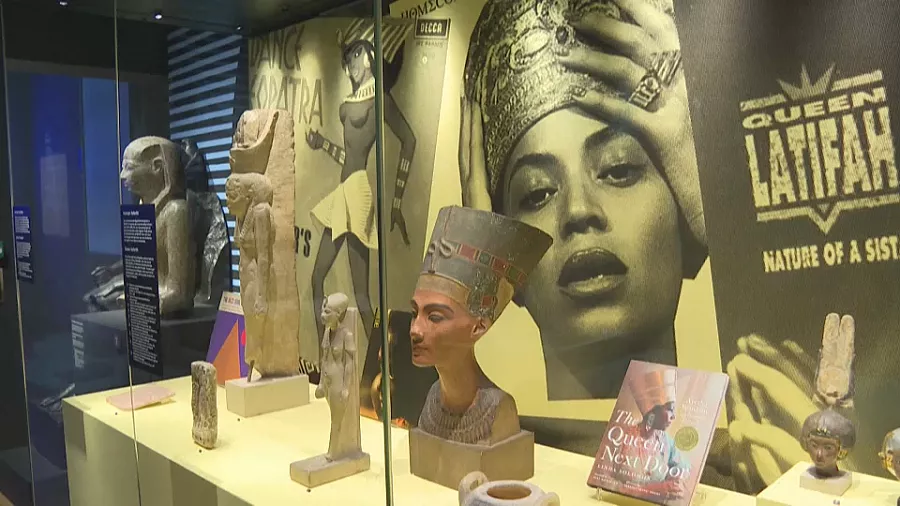
Controversial Dutch museum exhibit blending Beyoncé and ancient Egypt’s music enrages Cairo
The “Kemet” exhibition at Leiden’s Rijksmuseum van Oudheden has sparked controversy for its “Afrocentric” approach, showcasing the influence of ancient Egypt on black musicians, including hip-hop and other contemporary artists. The exhibition features album covers, photographs, and artworks that highlight the connection between ancient Egyptian culture and modern music.
However, Egypt’s antiquities service has strongly objected to the exhibition, accusing it of “falsifying history” and appropriating Egyptian culture. The Egyptian government perceives this as an attempt to assimilate their historical heritage with US black culture, driven in part by wealthy Hollywood elites. The controversy has escalated into a culture war, with racist and offensive comments being directed at the museum on social media.
A specialist in political geography from the University of Amsterdam points out that the reaction from the Egyptian government stems from viewing Egypt’s history through a Eurocentric lens and aims to move away from this perspective. The controversy also touches on the portrayal of historical figures, like Cleopatra, as black in a Netflix docudrama, which further contributed to the sensitive situation.
The museum, however, insists that its exhibition is grounded in scientific research and aims to explore the connection between ancient Egypt and contemporary music, especially the messages conveyed by black artists.
While some visitors praise the exhibition for its informative overview, Egyptian authorities remain critical and have banned the museum’s archaeologists from an important dig site in response to the controversy.
The situation reflects a complex relationship between Egyptians and their historical identity, with many seeing themselves as Arab first and Egyptian second, while their connection to Africa is also seen as complicated. The debate highlights the clash between different interpretations of Ancient Egypt’s cultural significance and how it is portrayed in modern contexts.

